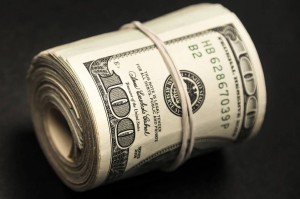The Sinister Side of Cash
< < Go Back
Paper money fuels corruption, terrorism, tax evasion and illegal immigration—so the U.S. should get rid of the $100 bill and other large notes.
When I tell people that I have been doing research on why the government should drastically scale back the circulation of cash—paper currency—the most common initial reaction is bewilderment. Why should anyone care about such a mundane topic? But paper currency lies at the heart of some of today’s most intractable public-finance and monetary problems. Getting rid of most of it—that is, moving to a society where cash is used less frequently and mainly for small transactions—could be a big help.
There is little debate among law-enforcement agencies that paper currency, especially large notes such as the U.S. $100 bill, facilitates crime: racketeering, extortion, money laundering, drug and human trafficking, the corruption of public officials, not to mention terrorism. There are substitutes for cash—cryptocurrencies, uncut diamonds, gold coins, prepaid cards—but for many kinds of criminal transactions, cash is still king. It delivers absolute anonymity, portability, liquidity and near-universal acceptance. It is no accident that whenever there is a big-time drug bust, the authorities typically find wads of cash.
Cash is also deeply implicated in tax evasion, which costs the federal government some $500 billion a year in revenue. According to the Internal Revenue Service, a lot of the action is concentrated in small cash-intensive businesses, where it is difficult to verify sales and the self-reporting of income. By contrast, businesses that take payments mostly by check, bank card or electronic transfer know that it is much easier for tax authorities to catch them dissembling. Though the data are much thinner for state and local governments, they too surely lose big-time from tax evasion, perhaps as much as $200 billion a year.
More From The Wall Street Journal (subscription required):




